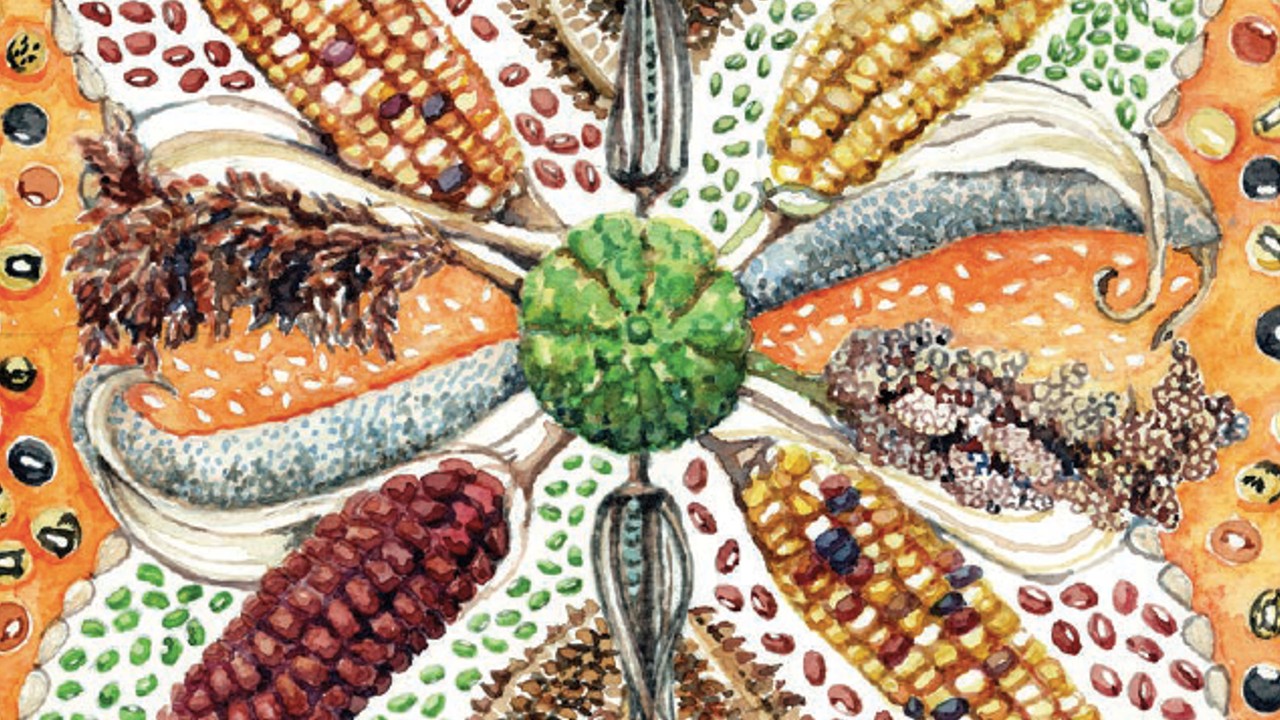Latest Seed Laws & Policies Resources
23 February 2018
Face to Face: African CSOs confront ARIPO, SADC over Draconian Harmonised Seed Laws
The ACB has the pleasure of sharing with you a short 5-minute video of the Southern African seed law and seed sovereignty dialogue, Face to Face: African CSOs confront ARIPO, SADC over Draconian Harmonised Seed Laws, co-hosted by the ACB in partnership with PELUM-Zimbabwe, which took place in Harare, Zimbabwe, 28-30th June 2017. Please watch […]
READ15 January 2018
Status report on the SADC, COMESA and EAC harmonised seed trade regulations: Where does this leave the regions’ smallholder farmers?
The Status Report on the SADC, COMESA and EAC harmonised seed trade regulations: Where does this leave the regions’ smallholder farmers? researched and written by Linzi Lewis and Sabrina Masinjila of the African Centre for Biodiversity (ACB), provides a brief background and status update on efforts by regional economic communities to harmonise seed trade and […]
READ5 May 2017
Impacts of Seed Laws on farmer managed seed systems
Seed laws often overlook the vital role of farmer-managed seed systems (FMSS), sidelining smallholder farmers and their locally adapted varieties, which don’t meet formal criteria. Learn more about these and other topics in the factsheets produced by the ACB for smallholder farmers in Africa. The materials are available in several languages and cover a range […]
READ5 May 2017
What are the DUS criteria?
DUS stands for Distinct, Uniform and Stable. The DUS criteria aims to supply industrial-scale commercial farming systems while smallholder farmers plant seed that is not distinct, uniform or stable. This third factsheet gives more information on this system and the potential impact on smallholder farmers. Learn more about these and other topics in the factsheets produced by the […]
READ5 May 2017
What is quality declared seed?
The quality declared seed (QDS) system is part of the formal seed system and also controls seed quality and purity. The QDS has several benefits, including the system being a good employment opportunity for farmers who produce improved seed. It does, however have drawbacks such as the limited access to basic seed for seed multiplication. […]
READ5 May 2017
What is a seed law?
Seed laws were developed by governments and industry and are used as instruments to replace and undermine the farmer-managed seed system. Learn more about these and other topics in the factsheets produced by the ACB for smallholder farmers in Africa. The materials are available in several languages and cover a range of topics dealing with […]
READ2 June 2016
Integration of small-scale farmers into formal seed production in South Africa
The scoping report looks at key policies, legislation and programmes in SA with an emphasis on seed laws and considers the implications for small- scale farmer involvement in this sector and outlines a few projects on community seed production, indigenous crops and black- owned private sector seed production efforts.
READ1 October 2013
AFSA Statement Condemning COMESA Approval of Seed Regulations
The Alliance for Food Sovereignty in Africa strongly condemns the approval during September 2013, by the Council of Ministers of the Common Market for East and Southern Africa (COMESA) of the draft COMESA Seed Trade Harmonization Regulations, 2013 (hereinafter referred to as the ‘Seed Regulations’). The COMESA Seed Regulations will greatly facilitate agricultural transformation in […]
READ2 April 2013
Civil Society Statement on COMESA Seed Trade Laws
This submission was made by civil society groups at a COMESA meeting in Lusaka during March 2013, in which serious concerns were raised about the COMESA seed trade laws as negatively impacting on small farmers in the COMESA region. Statement made by: Zambia Climate Change Network (ZCCN); East and Southern Africa Small Scale Farmers Forum […]
READ23 November 2012
Harmonisation of Africa’s seeds laws: a recipe for disaster
The core of the paper is focused on the pressures being exerted on African governments to adopt the 1991 Act of the International Union for the Protection of Plant Varieties (UPOV), particularly through regional harmonisation of plant variety protection (PVP) policies and laws. We also discuss the adverse impacts PVP laws will have on the […]
READ









